Death and state funeral of Leonid Brezhnev
On 10 November 1982, Leonid Ilyich Brezhnev, the third General Secretary of the Communist Party of the Soviet Union (CPSU) and the fifth leader of the Soviet Union, died at the age of 75, a month before his 76th birthday, after suffering a heart attack following years of serious ailments. His death was officially acknowledged on 11 November simultaneously by Soviet radio and television. Brezhnev was given a state funeral after three full days of national mourning, then buried in an individual tomb on Red Square at the Kremlin Wall Necropolis. Yuri Andropov, Brezhnev's eventual successor as general secretary, was chairman of the committee in charge of managing Brezhnev's funeral, held on 15 November 1982, five days after his death.
 Body of Leonid Brezhnev, lying in state at the Pillar (Column) Hall of the House of the Unions | |
| Date | November 10–15, 1982 |
|---|---|
| Location | Moscow, Soviet Union |
| Burial | Kremlin Wall Necropolis |
| Lying in state | Pillar (Column) Hall House of the Unions |
| Eulogists | Yuri Andropov Dmitry Ustinov Anatoly Alexandrov Viktor Pushkarev Alexei Gordienko |
| Pallbearers | Yuri Andropov Nikolai Tikhonov Konstantin Chernenko Dmitry Ustinov Andrei Gromyko Viktor Grishin Mikhail Gorbachev Dinmukhamed Konayev Volodymyr Shcherbytsky |
The funeral was attended by 32 heads of state, 15 heads of government, 14 foreign ministers and four princes; United States President Ronald Reagan sent Vice President George H. W. Bush. Eulogies were given by Yuri Andropov, Dmitry Ustinov, Anatoly Alexandrov, Viktor Pushkarev, and Alexei Gordienko.
Final year in office
| ||
|---|---|---|
|
First, then General Secretary of the CPSU
Foreign policy Media gallery |
||

Brezhnev had been suffering from various cardiovascular ailments since 1974.[1] By 1982, the most deleterious of these had become arteriosclerosis of the aorta and cardiac ischemia and arhythmia,[2] all of which had been exacerbated by his heavy smoking, obesity,[3] and dependence on tranquilizers and sleeping medication.[4]
Brezhnev previously broached the subject of his retirement with Yuri Andropov and Foreign Minister Andrei Gromyko in 1979.[5] With no precedent or procedures existing for the voluntary retirement of a Soviet leader, a majority of the Politburo instead preferred the stability provided by keeping the status quo and eschewing changes to the leadership[6] despite a minority view of the need for "a breath of fresh air."[7] With the Politburo's request that he remain, Brezhnev did not demur: "If you are all of this opinion, then I will keep working a little longer."[5]
The Politburo was nominally successful in keeping many of Brezhnev's ailments secret.[8] However, the decision to forgo retirement meant that by 1982, a number of events increasingly began to more publicly illustrate the decline of Brezhnev's health, during what would be, his final year in office.
January–April
At Mikhail Suslov's funeral on 25 January 1982, Brezhnev "seemed confused" by elements of the ceremony, showing uncertainty over when to salute passing troops. While other Politburo members remained standing, Brezhnev was twice seen to move behind the Lenin Mausoleum's parapet to sit in a chair and drink liquid from a mug.[9] Three weeks later, while attending the funeral of fellow CPSU Central Committee member Konstantin Grushevoi, Brezhnev was seen weeping profusely whilst offering sympathies to Grushevoi's widow—a scene which was broadcast uncensored—the first time Brezhnev being shown overcome with emotion on Soviet television.[10]
On 6 March 1982 while at Vnukovo airport to meet visiting Polish Prime Minister Wojciech Jaruzelski, Brezhnev's gait was shuffled and he appeared to be laboring for breath.[11] Four days later on 10 March Brezhnev met with President Mauno Koivisto of Finland.[12] At those meetings, as well as two days later while at an International Women's Day gala at the Bolshoi Theatre, Brezhnev's health had noticeably improved. Brezhnev's visit to the Bolshoi was his fourth public appearance in five days.[11]
Tashkent factory accident
On 21 March 1982 Brezhnev began a visit to Soviet Central Asia which included a particularly rigorous schedule of "medal-giving ceremonies, speeches, and visits to industrial and agricultural enterprises."[13][14] On the 24th of March while touring the Chkalov aircraft factory in Tashkent with Uzbek Communist Party first secretary Sharaf Rashidov, Brezhnev was injured when balustraded-catwalk scaffolding suddenly collapsed under the weight of a number of assembled factory workers, falling on top of Brezhnev and his security detail and causing Brezhnev to suffer a concussion while fracturing his right clavicle.[15] The subsequent secrecy surrounding this accident led Western journalists to speculate that Brezhnev had suffered a stroke, supposedly during his return flight from Tashkent, as there was no news footage of Brezhnev's arrival in Moscow after the 2,772-kilometre (1,722 mi) journey.[16][17][18] The lack of footage was an unusual breach of protocol on the part of the Soviet press, who would invariably document the top leadership's arrivals after important functions abroad.[13]
Upon returning to Moscow, Brezhnev was removed from his Ilyushin Il-62 aircraft by stretcher and taken to the Kremlin Polyclinic where, according to Western reports, he remained unconscious in a coma in critical condition for several days.[16][13] Brezhnev's injuries placed additional strain on his already precarious state of health, a circumstance which contributed to a lengthened recovery time—his broken collarbone, for example—one injury which "subsequently refused to mend."[19] Shortly thereafter the Soviet government claimed Brezhnev was on a "routine winter vacation"[20] and he was not seen in public again until approximately four weeks later on 22 April 1982, when he appeared on stage looking "considerably thinner" at the Kremlin Palace of Congresses during celebrations marking the 112th anniversary of Lenin's birth.[21][17]
May–August
Brezhnev next attended the annual May Day festivities on 1 May 1982 standing on the balcony of the Lenin Mausoleum for the entire 90-minute parade, albeit displaying a demeanor which "confirmed earlier impressions of a man, for whom, public occasions were a strain."[22]
On 23 May 1982, Brezhnev spoke at the Kremlin for 30 minutes in a slurred speech where he expressed approval of President Reagan's offer of new strategic arms negotiations.[23] Reagan had offered on 6 April 1982 plans to address a United Nations disarmament conference in New York in June and had urged Brezhnev to do the same, saying "I think it would be well if he and I had a talk," setting up an opportunity for the two leaders to meet.[24]
On 25 May Brezhnev held meetings with Austrian President Rudolf Kirchschläger. The following day it was announced that Yuri Andropov had stepped down as head of the KGB, two days after being appointed to a top position in the Communist Party Secretariat. Western analysts speculated that Andropov's move to the Secretariat strengthened his position amongst the other possible successors to Brezhnev, while also noting that there had been "no tangible sign of any diminution" in Brezhnev's control nor "any setback to the standing of Konstantin Chernenko," a fellow member of the Secretariat who, "by dint of his close association with Brezhnev" was "certain to figure in any succession struggle."[25]
In July Brezhnev left Moscow for his usual summer vacation at a Black Sea retreat on the Crimean peninsula, where in August he was visited by Polish Prime Minister Jaruzelski, who updated Brezhnev with a "sobering account of continuing resistance" to martial law in Poland.[26]
September–October
September 1982 saw speculation from Soviet government sources on the topic of Brezhnev's retirement, when those sources suggested that Brezhnev might leave office with extraordinary honors, possibly in December 1982, about the time of celebrations for the 60th anniversary of the formal establishment of the Soviet Union in 1922. Western experts said that the reports of the impending resignation were possibly part of a campaign by Politburo members to either try to push Brezhnev out of office or to undercut the chances of Chernenko in any succession.[27]
Despite suggestions of retirement, the month of September 1982 saw the appearance of Brezhnev continuing to work. On 14 September, Brezhnev reaffirmed support for the Palestine Liberation Organization.[28] Remarks given on 16 September at a dinner for the visiting President of South Yemen, Ali Nasser Mohammed, signaled Brezhnev's desire to allow the Soviet Union a greater role in any new Middle East peace process.[29] On 21 September Brezhnev met with Indian Prime Minister Indira Gandhi in Moscow.[30] Although the prime minister spoke with Brezhnev regarding India's concern over increasing influence on Pakistan from the United States and China,[31] she reportedly avoided other difficult discussions during their meetings, owing to Brezhnev's "shaky grasp of issues."[32]
The last week of September saw Brezhnev returning to Soviet Central Asia, with a visit to Baku, where he expressed a desire to strengthen Sino-Soviet relations in a speech given before the local Soviet leadership of Azerbaijan.[33] Brezhnev's speech in Baku was notable for an unusual moment of "levity and confusion" when, after mistakenly referring to Azerbaijan as 'Afghanistan', it became apparent that Brezhnev was reading from the wrong speech. When given the correct papers to read from, Brezhnev remarked that the mistake—while "not his fault"—would be fixed by him starting the speech again "from the beginning."[34]
In late October Brezhnev gave a speech to Soviet military leaders assembled at the Kremlin, where he pledged support for "a drive to increase the combat-readiness of the Soviet armed forces," and for an "upgrading of military technology" to counter the United States, which he described as threatening to "push the world into the flames of nuclear war." Brezhnev also re-emphasized the need for good relations with China, the fostering of which being described as "of no small importance."[35]
November final public appearance
On 7 November 1982, three days before he died, Brezhnev marked the 65th anniversary of the Bolshevik Revolution by attending the annual military parade through Red Square. Wearing tinted spectacles to guard against the sunlight and showing little animation, Brezhnev stood on the balcony of the Lenin Mausoleum along with other members of the Politburo for two hours in subfreezing temperatures as military regiments of troops and armored vehicles filed past.[36] In a speech at the Kremlin after the parade, Brezhnev remarked upon the Soviet Union's "essence of our policy" as "peaceableness" and spoke of the "sincere striving for equitable and fruitful cooperation with all who want such cooperation," while noting the "profound belief that exactly such a way will lead mankind to peace for the living and would-be generations."[37]
Death and declaration
On the 8th of November 1982 Brezhnev spent the day hunting at Zavidovo, while the 9th of November was spent at his office in the Kremlin. On the morning of the 10th his bodyguards found him "lying motionless in his bed."[38] A brief effort was made to resuscitate Brezhnev until an attending physician determined that he had already been dead for several hours[39] after suffering a heart attack.[40][41]
The first hint to the Soviet people that a death had occurred within the top leadership came that evening at 19:15 MSK (UTC+03:00), when a television program in honor of the "Day of the Militia Men" was replaced by a documentary on Vladimir Lenin. Another abrupt change to the television line-up occurred when an ice hockey game on Channel Two was replaced with a concert featuring Tchaikovsky's Pathétique symphony.[42] On Vremya (Время), the Soviet Union's state television newscast, the hosts wore somber clothes instead of their normally informal dress.[43]
At first, Soviet citizens believed it was Andrei Kirilenko who had died, as he had not been present at the 65th anniversary of the October Revolution a few days earlier (he died in 1990).[43][44] Speculation that it was Brezhnev who had died began when it was noted that Brezhnev had failed to sign a message of greetings published by TASS to José Eduardo dos Santos, the Angolan president, on the occasion of Angola's Independence Day. In previous years the message had been signed by Brezhnev, but on this occasion it was signed in the name of the Central Committee.[45]
Confirmation of Brezhnev's death was eventually made public on the 11th of November simultaneously by Soviet radio and television hosts.[43] The television announcement was read by Igor Kirillov with tears in his eyes at 11:00 MSK.[46]
Condolences
Upon news of Brezhnev's death, Syrian President Hafez al-Assad declared seven days of mourning.[47] North Korea declared one day of mourning; Laos declared four days, while Afghanistan, Vietnam, and Kampuchea all declared three days of mourning.[48]
Pope John Paul II promised "a particular thought for the memory of the illustrious departed one," while former West German Chancellor Helmut Schmidt said Brezhnev's death would "be painfully felt." The government of the People's Republic of China expressed "deep condolences," while Indian Prime Minister Indira Gandhi said "he [Brezhnev] stood by us in our moment of need."[43]
In Tokyo, Chief Cabinet Secretary Kiichi Miyazawa issued Japan's official statement describing Brezhnev's death as "a truly regretful event for the development of friendly relations," and offered condolences to "the bereft family and people of the Soviet Union."[49] French President Francois Mitterrand spoke of Brezhnev as "a great leader of the Soviet Union, a statesman whose eminent role in the world will be remembered by history," while Queen Elizabeth II's statement described how she "learned with regret of the death of President Brezhnev," and imparted "in my own name and on behalf of the British people ... our sympathy to you and the people of the Soviet Union."[50]
US President Ronald Reagan issued a statement calling Brezhnev "one of the world's most important figures for nearly two decades," while expressing his hope for an improvement in Soviet–US relations.[45] Reagan visited the Soviet embassy in Washington, D.C. on 13 November to sign a message in the embassy's condolence book.[51] Reagan later described having "a strange feeling in that place," noting how no one, except the ambassador, was smiling.[52] Ambassador Anatoly Dobrynin noticed Reagan appearing "guarded and very inhibited when entering the embassy ... wondering what kind of place it was," but also stated that Reagan seemed "more in his element by the end of his visit."[53]
Andropov's succession
The twenty-four hour delay in declaring the death of Brezhnev was later seen by First World commentators as proof of an ongoing power struggle in the Soviet leadership over who would succeed as general secretary. Prior to this, Yuri Andropov and Konstantin Chernenko were both seen as equal candidates for the position.[36] When the announcement confirming Brezhnev's death was finally made, it stated that Yuri Andropov was elected chairman of the committee in charge of managing Brezhnev's funeral, suggesting Andropov had overtaken Chernenko as Brezhnev's most-likely successor.[54]
The Central Committee election confirming Andropov as general secretary took place on the 12th of November. The plenary meeting began with a speech by Andropov where he first eulogized Brezhnev, whose life "came to an end at a time when his thoughts and efforts were set on the solution of the major tasks of economic, social and cultural development laid down by the 26th Congress," then went on to address the meeting's members who "met today to ensure the continuation of the cause to which he [Brezhnev] gave his life."[55] After recognizing a minute of silence in honor of Brezhnev, Chernenko took the floor to speak on the election. Chernenko in his speech quickly nominated Andropov to become general secretary, stating Andropov had "assimilated well, Brezhnev's style of leadership" while also "possessing modesty ... respect for the opinion of other comrades, and passion for collective work."[56] The ensuing vote was unanimous in selecting Andropov to be the new general secretary.[57]
Funeral service

The Taman and Kantemir Guard divisions of the Moscow militsiya sealed off downtown Moscow on 12 November.[47][41] Large avenues were tightly guarded by the police and the Moscow military garrison while soldiers, wearing black-edged red armbands, stood in front of the House of the Unions, the building itself being decorated with numerous red flags and other communist symbols.[43]
Brezhnev's body lay in state within the Pillar, or Column Hall, of the House of the Unions for three full days, a period of mourning during which Soviet citizens, government officials, and various foreign dignitaries came to pay their respects and to lay wreaths at the foot of Brezhnev's bier. Andropov and other members of the Politburo also paid their respects to Brezhnev's family, including his wife Viktoria Brezhneva, daughter Galina Brezhneva, and son Yuri Brezhnev, who were all seated within a reception area adjacent to Brezhnev's bier.[58]
On the day of the funeral itself, the 15th of November, Brezhnev's coffin was placed on an artillery carriage and towed by an olive-green BRDM-2 armored vehicle of the Red Army in a procession to Lenin's Mausoleum on Red Square. This funeral procession included Brezhnev's family, dozens of wreaths, and Brezhnev's military and civilian decorations carried by Soviet colonels and other military officers.[59]
During funerals of Soviet leaders, the deceased's decorations are carried on velvet cushions in a procession behind the coffin. This task is traditionally given to an escort of senior officers, each carrying a cushion with one decoration on it. However, as Brezhnev had more than two hundred decorations, several had to be placed on each cushion.[60] Brezhnev's funeral officer escort ultimately comprised forty-four persons.[61]
Eulogies
Once the funeral procession arrived at Red Square, eulogies were given from the Lenin Mausoleum's balcony by Andropov, Minister of Defence Dmitry Ustinov, and by three representatives of the 'people': President of the Academy of Sciences Anatoly Alexandrov; factory worker Viktor Viktorovich Pushkarev; and Alexei Fedorovich Gordienko, the first secretary of the Dneprodzerzhinsk city committee of the Communist Party, the city where Brezhnev began his party work in 1937.[62]
Andropov's eulogy offered praise for Brezhnev's détente policy, where he "consistently fought, with all the ardor of his soul, for the relaxation of international tension, for delivering mankind from the threat of nuclear war," as well as praise for Brezhnev's "strengthening the cohesion of the socialist community and the unity of the international Communist movement."[63] Ustinov's eulogy similarly touched on Brezhnev's role as an "outstanding architect of détente" but also mentioned Brezhnev's position as political commissar in the Soviet 18th Army during World War II, noting how Brezhnev led his men "with the fiery party word."[64]
Burial
After the eulogies were delivered, a military orchestra played the third movement of Chopin's Sonata No. 2 as pallbearers led by Andropov and Soviet Premier Nikolai Tikhonov carried the coffin to a grave site located just to the left of Yakov Sverdlov, an aide to Lenin, and to the right of Felix Dzerzhinsky, founder of the secret police. Brezhnev's family then made their farewells, with his wife Viktoria and daughter Galina kissing Brezhnev on the face in accordance with Russian Orthodox traditions. As Brezhnev's body was lowered into the grave, tugboats on the Moscow River sounded their signal horns. The conclusion of the burial service featured a military parade with sailors in black uniforms, infantry troops in brown, border units in dark green and airmen in blue uniforms marching ten abreast through Red Square.[65][64]
Brezhnev's body reportedly sustained two falls before it was buried. The first occurred on 12 November when Brezhnev's body fell through the bottom of the coffin as it was being lifted into place on its bier at the lying in state in the House of the Unions. After that incident, a new, metal-plated coffin was made, and as it was being lowered into the grave on the 15th of November, the gravediggers could not handle its weight, and the coffin fell with a loud crash into the grave's hole.[66] The second occurrence of Brezhnev's body being dropped is disputed by one of the gravediggers, Georgy Kovalenko, who in 1990 gave an account of the event in a Sobesednik supplement to Komsomolskaya Pravda, where he stated that he lowered Brezhnev's coffin "by the book ... quickly and gently as if by a high-speed elevator." Kovalenko stated that the sound resembling a 'crash' that viewers heard on television during a live broadcast of the funeral was actually "the sound of the Kremlin clock and a cannon salute."[67]
Foreign delegations
Following the burial service in Red Square, a funeral reception for foreign dignitaries was held at the Kremlin in St. George's Hall, with the Soviet leadership's four ranking members present: General Secretary Andropov (as head of the CPSU), Premier Tikhonov (as head of government), Minister Gromyko (as head of foreign affairs) and acting President Vasili Kuznetsov (as interim head of state).[68] Each foreign dignitary stood in line to greet the four leaders in a procession lasting just under one hour.
British Foreign Secretary Francis Pym was unsuccessful in convincing Prime Minister Margaret Thatcher to attend the funeral. Thatcher, whose relations with Pym were "frosty," had remained "skeptical of the idea that summit talks between the leaders of the two superpowers could do any good," and thus was "wary of closer contact with the Communist world."[69] Thatcher, who dismissed Pym as foreign secretary in 1983, later agreed to attend the funerals of Andropov in 1984 and Chernenko in 1985.
Canadian Prime Minister Pierre Trudeau was lobbied by certain members of his government not to attend Brezhnev's funeral, in particular, by Canadian Ambassador to the United States Allan Gotlieb, who suggested that strong domestic concerns from the Polish-Canadian diaspora over Soviet support of martial law in Poland merited sending Governor General Edward Schreyer instead.[70] Nevertheless, Trudeau decided to attend the main funeral service in Red Square and the lying in state in the House of the Unions with his 10 year-old son, future Prime Minister Justin Trudeau.[71] The funeral reception held in St. George's Hall, Pierre Trudeau attended alone.[68]
Indian Prime Minister Indira Gandhi left Moscow immediately following the funeral reception in St. George's Hall, in order to attend the funeral of Indian spiritual leader Vinoba Bhave, who had died earlier that day.[72]
American delegation
According to President Reagan, the Soviets made a suggestion that any American delegation to the funeral should comprise no more than three people.[73] US Secretary of State George Shultz and National Security Advisor William Clark both tried to persuade Reagan to be one of those people. Reagan however decided not to go, with administration officials giving the reason that Soviet and US leaders had never made such gestures of attendance in the past, along with concern over the possibility of Reagan's attendance being seen as "hypocritical grandstanding" in light of his prior criticisms of the Soviets.[45] Reagan himself stated at a news conference that his decision not to attend was additionally influenced by a conflict in schedules, with his own schedule calling for "visits here by a head of state next week."[74][lower-alpha 1] This was in reference to the forthcoming visit by Helmut Kohl, the interim chancellor of West Germany since the October 1982 collapse of Helmut Schmidt's Social Democratic government, whose first visit to the United States as chancellor[lower-alpha 2] had been scheduled to commence the weekend of 13–14 November 1982,[76] with a White House reception planned for Monday, 15 November 1982,[77] the same day as Brezhnev's funeral.
In place of his own attendance Reagan sent a delegation headed by Vice President Bush, who happened to be overseas conducting a seven-nation tour of Africa at the time.[78][79] After receiving word from Reagan redirecting him to the funeral, Bush flew from Lagos, Nigeria to Frankfurt, West Germany, where a majority of the aides and staff accompanying him on the African tour were disembarked to wait while Bush continued on to Moscow.[80] Upon their arrival at Sheremetyevo airport on the 14th of November, Bush and Second Lady Barbara Bush—along with Shultz, who had arrived earlier from Washington[81]—were taken to the House of the Unions where they were joined by US Ambassador to the Soviet Union Arthur A. Hartman and Hartman's wife, Donna. As an orchestra inside the Pillar Hall played the death suite from Grieg's Peer Gynt, the five Americans made their way in procession towards the foot of Brezhnev's bier where they paid their respects by bowing their heads. When the group turned to leave, a Soviet protocol officer motioned them over to an area where the members of Brezhnev's family were seated, whereupon Brezhnev's widow, Viktoria, rose to greet Bush, who conveyed to her the "condolences of Reagan and the American people."[79]
Bush–Andropov meeting
After the funeral reception in St. George's Hall, Andropov and Foreign Minister Gromyko held a more intimate sit-down meeting with Bush, Shultz, and Hartman at the Kremlin.[82] During this meeting Andropov raised concerns regarding the United States, in particular, his belief that "due to US actions, at present almost the entire stock of stability between the two countries ... had been carelessly squandered." Andropov also mentioned "American interference in internal Soviet affairs" just before moving to close the meeting, at which point he issued an apology for assigning such criticisms to the United States "on this, not the most auspicious occasion" where "he [Bush] and Secretary Shultz had come to Moscow to express condolences and sympathy to the Soviet Union at this moment of grief."[83] Bush's response lamented the lack of time which prevented him from either rebutting Andropov's contentions or "detailing the list of Soviet actions which we would consider hostile." Instead, Bush mentioned aspects of the funeral which drew his interest, such as "the young men who had marched in the parade at the ceremony today," a recollection which reminded him fondly of his own four sons (who are of a similar age).[84] Bush also mentioned his hope that related US–Soviet negotiations underway at that time in Geneva would continue to "bear fruit."[83]
After meeting with Andropov, Bush and Shultz were taken to the US Embassy to meet with seven Pentecostals who had taken refuge inside and were living in the embassy since June 1978 after being denied exit visas from the Soviet Union. Bush and Shultz both expressed their hope that "the time will soon come when they can leave."[85] Bush was then taken to the airport where, after a brief stopover in Frankfurt to pick up his waiting aides and staff, he resumed his African tour by flying to Harare for a state visit of Zimbabwe.[86]
In his report of the meeting sent to Reagan by Bush while still aboard Air Force Two, Bush stated that Andropov "seemed sure of himself" and that "much of the rhetoric was predictable and accusatory."[84] Bush also stated that the only moment of levity occurred when Andropov "smiled" at Bush's suggestion that they each had something in common, with Bush director of the CIA at the same time Andropov was in charge of the KGB.[84]
Upon his return to Washington, Shultz met with Reagan in the Oval Office to discuss his and Bush's meeting with Andropov.[87] Shultz conceded that his earlier belief that Reagan should attend the funeral was wrong, stating Reagan "was right not to go."[88]
List of foreign dignitaries
The foreign dignitaries who attended Brezhnev's funeral:[89][90]
.svg.png.webp) Babrak Karmal · Afghan Revolutionary Council chairman and general secretary
Babrak Karmal · Afghan Revolutionary Council chairman and general secretary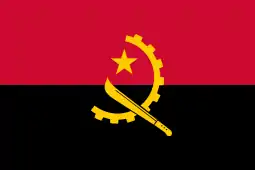 José Eduardo dos Santos · Angolan president
José Eduardo dos Santos · Angolan president Adnan Omran · Arab League aide to the secretary general
Adnan Omran · Arab League aide to the secretary general.svg.png.webp) Sir Zelman Cowen · Australian former governor-general
Sir Zelman Cowen · Australian former governor-general Rudolf Kirchschläger · Austrian president
Rudolf Kirchschläger · Austrian president Willibald Pahr · Austrian foreign minister
Willibald Pahr · Austrian foreign minister Rear Adm. M.H. Ali Khan · Bangladeshi Deputy Chief Martial Law Administrator
Rear Adm. M.H. Ali Khan · Bangladeshi Deputy Chief Martial Law Administrator.svg.png.webp) Wilfried Martens · Belgian prime minister
Wilfried Martens · Belgian prime minister.svg.png.webp) Louis Van Geyt · Belgian Communist Party chairman
Louis Van Geyt · Belgian Communist Party chairman.svg.png.webp) Romain Vilon Guezo · Beninese National Revolutionary Assembly Permanent Committee president
Romain Vilon Guezo · Beninese National Revolutionary Assembly Permanent Committee president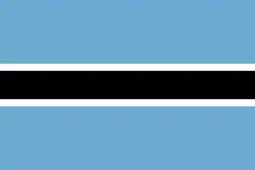 Akuna Mpuchane · Botswana's ambassador to the Court of St James's
Akuna Mpuchane · Botswana's ambassador to the Court of St James's.svg.png.webp) Todor Zhivkov · Bulgarian State Council chairman
Todor Zhivkov · Bulgarian State Council chairman Samuel Ebua · Cameroonian agriculture minister
Samuel Ebua · Cameroonian agriculture minister.svg.png.webp) Pierre Trudeau · Canadian prime minister
Pierre Trudeau · Canadian prime minister.svg.png.webp) William Kashtan · Canadian Communist Party general secretary
William Kashtan · Canadian Communist Party general secretary Luis Corvalán · Chilean Communist Party general secretary
Luis Corvalán · Chilean Communist Party general secretary Huang Hua · Chinese foreign minister
Huang Hua · Chinese foreign minister Héctor Cherry · Colombian representative at the United Nations in Europe
Héctor Cherry · Colombian representative at the United Nations in Europe Denis Sassou Nguesso · Congolese president
Denis Sassou Nguesso · Congolese president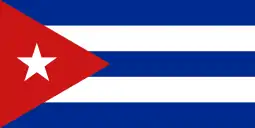 Fidel Castro · Cuban president
Fidel Castro · Cuban president.svg.png.webp) Spyros Kyprianou · Cypriot president
Spyros Kyprianou · Cypriot president Gustáv Husák · Czechoslovak president
Gustáv Husák · Czechoslovak president Henrik · Danish prince consort
Henrik · Danish prince consort Uffe Ellemann-Jensen · Danish foreign minister
Uffe Ellemann-Jensen · Danish foreign minister Mamdouh Salem · Egyptian presidential secretary
Mamdouh Salem · Egyptian presidential secretary.svg.png.webp) Mengistu Haile Mariam · Ethiopian Workers Party general secretary
Mengistu Haile Mariam · Ethiopian Workers Party general secretary Mauno Koivisto · Finnish president
Mauno Koivisto · Finnish president Pierre Mauroy · French prime minister
Pierre Mauroy · French prime minister Claude Cheysson · French foreign minister
Claude Cheysson · French foreign minister Maurice Faure · French National Assembly foreign affairs chairman
Maurice Faure · French National Assembly foreign affairs chairman Georges Marchais · French Communist Party general secretary
Georges Marchais · French Communist Party general secretary Erich Honecker · East German Socialist Unity Party general secretary and State Council chairman
Erich Honecker · East German Socialist Unity Party general secretary and State Council chairman Karl Carstens · West German president
Karl Carstens · West German president Andreas Papandreou · Greek prime minister
Andreas Papandreou · Greek prime minister Charilaos Florakis · Greek Communist Party general secretary
Charilaos Florakis · Greek Communist Party general secretary Louis Lansana Beavogui · Guinean prime minister
Louis Lansana Beavogui · Guinean prime minister János Kádár · Hungarian Socialist Workers Party general secretary
János Kádár · Hungarian Socialist Workers Party general secretary Pál Losonczi · Hungarian Presidential Council chairman
Pál Losonczi · Hungarian Presidential Council chairman Indira Gandhi · Indian prime minister
Indira Gandhi · Indian prime minister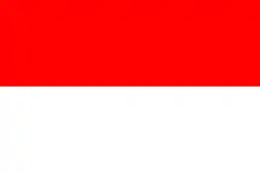 Adam Malik · Indonesian vice president
Adam Malik · Indonesian vice president Patrick Hillery · Irish president
Patrick Hillery · Irish president Michael O'Riordan · Irish Communist Party general secretary
Michael O'Riordan · Irish Communist Party general secretary Amintore Fanfani · Italian Senate president
Amintore Fanfani · Italian Senate president Emilio Colombo · Italian foreign minister
Emilio Colombo · Italian foreign minister Enrico Berlinguer · Italian Communist Party general secretary
Enrico Berlinguer · Italian Communist Party general secretary.svg.png.webp) Zenkō Suzuki · Japanese prime minister
Zenkō Suzuki · Japanese prime minister Mudar Badran · Jordanian prime minister
Mudar Badran · Jordanian prime minister Heng Samrin · Kampuchean People's Revolutionary Party general secretary and Council of State president
Heng Samrin · Kampuchean People's Revolutionary Party general secretary and Council of State president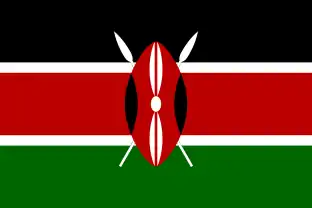 Robert Ouko · Kenyan foreign minister
Robert Ouko · Kenyan foreign minister Pak Song-chol · North Korean vice president
Pak Song-chol · North Korean vice president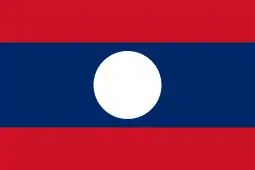 Prince Souphanouvong · Laotian president
Prince Souphanouvong · Laotian president Evaristus Rets'elisitsoe Sekhonyana · Lesothoan deputy prime minister
Evaristus Rets'elisitsoe Sekhonyana · Lesothoan deputy prime minister.svg.png.webp) Abdul Salam Jalloud · Libyan representative
Abdul Salam Jalloud · Libyan representative René Urbany · Luxembourgish Communist Party president
René Urbany · Luxembourgish Communist Party president Moussa Traoré · Malian president
Moussa Traoré · Malian president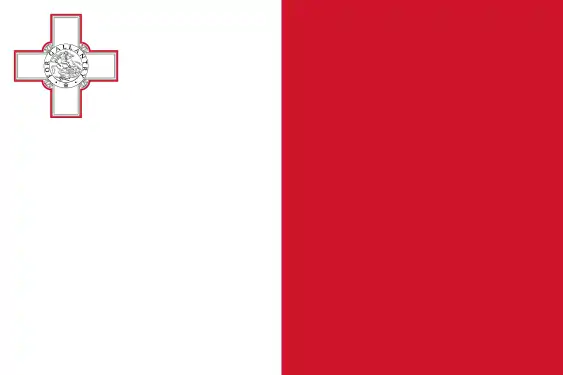 Agatha Barbara · Maltese president
Agatha Barbara · Maltese president.svg.png.webp) Yumjaagiin Tsedenbal · Mongolian Chairman of the Presidium of the People's Great Khural
Yumjaagiin Tsedenbal · Mongolian Chairman of the Presidium of the People's Great Khural.svg.png.webp) Samora Machel · Mozambican president
Samora Machel · Mozambican president Gijs van Aardenne · Dutch deputy prime minister
Gijs van Aardenne · Dutch deputy prime minister Daniel Ortega · Nicaraguan president
Daniel Ortega · Nicaraguan president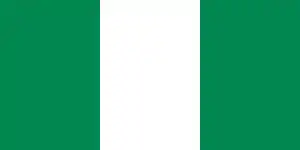 Alex Ifeanyichukwu Ekwueme · Nigerian vice president
Alex Ifeanyichukwu Ekwueme · Nigerian vice president Kåre Willoch · Norwegian prime minister
Kåre Willoch · Norwegian prime minister Harald · Norwegian crown prince
Harald · Norwegian crown prince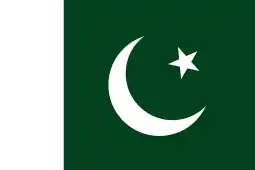 Zia ul-Haq · Pakistani president
Zia ul-Haq · Pakistani president Yasser Arafat · Palestine Liberation Organization chairman
Yasser Arafat · Palestine Liberation Organization chairman Imelda Marcos · Filipino Human Settlements minister and First Lady
Imelda Marcos · Filipino Human Settlements minister and First Lady Wojciech Jaruzelski · Polish prime minister
Wojciech Jaruzelski · Polish prime minister Henryk Jabłoński · Polish Council of State chairman
Henryk Jabłoński · Polish Council of State chairman Vasco Futscher Pereira · Portuguese foreign minister
Vasco Futscher Pereira · Portuguese foreign minister Álvaro Cunhal · Portuguese Communist Party general secretary
Álvaro Cunhal · Portuguese Communist Party general secretary.svg.png.webp) Nicolae Ceaușescu · Romanian president
Nicolae Ceaușescu · Romanian president.svg.png.webp) Jacques Hodoul · Seychellois foreign minister
Jacques Hodoul · Seychellois foreign minister José Pedro Pérez-Llorca · Spanish foreign minister
José Pedro Pérez-Llorca · Spanish foreign minister Olof Palme · Swedish prime minister
Olof Palme · Swedish prime minister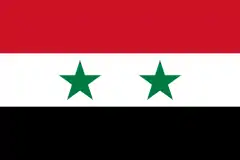 Hafez al-Assad · Syrian president
Hafez al-Assad · Syrian president Mohammed Chaker · Tunisian justice minister
Mohammed Chaker · Tunisian justice minister Bülend Ulusu · Turkish prime minister
Bülend Ulusu · Turkish prime minister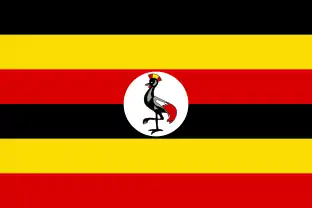 Paulo Muwanga · Ugandan vice president
Paulo Muwanga · Ugandan vice president Francis Pym · British foreign secretary
Francis Pym · British foreign secretary Iain Sutherland · British ambassador to the Soviet Union (Crown representative)
Iain Sutherland · British ambassador to the Soviet Union (Crown representative) Gordon McLennan · British Communist Party general secretary
Gordon McLennan · British Communist Party general secretary Javier Pérez de Cuéllar · UN secretary general
Javier Pérez de Cuéllar · UN secretary general George H. W. Bush · US vice president
George H. W. Bush · US vice president George Shultz · US secretary of state
George Shultz · US secretary of state Gus Hall · US Communist Party National Committee general secretary
Gus Hall · US Communist Party National Committee general secretary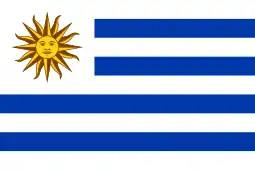 Rodney Arismendi · Uruguayan Communist Party representative
Rodney Arismendi · Uruguayan Communist Party representative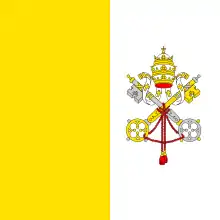 Giovanni Battista Marini Bettolo Marconi · Accademia dei XL president and Pontifical Academy of Sciences Councillor and Academician (Papal representative)
Giovanni Battista Marini Bettolo Marconi · Accademia dei XL president and Pontifical Academy of Sciences Councillor and Academician (Papal representative).svg.png.webp) José Alberto Zambrano Velasco · Venezuelan foreign minister
José Alberto Zambrano Velasco · Venezuelan foreign minister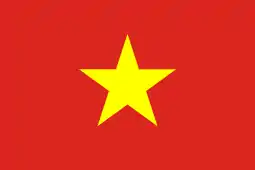 Trường Chinh · Vietnamese prime minister
Trường Chinh · Vietnamese prime minister Ali Abdullah Saleh · North Yemeni president
Ali Abdullah Saleh · North Yemeni president Ali Nasser Mohammed · South Yemeni president
Ali Nasser Mohammed · South Yemeni president.svg.png.webp) Petar Stambolić · Yugoslavian President of the Presidency
Petar Stambolić · Yugoslavian President of the Presidency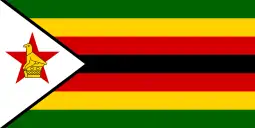 Canaan Banana · Zimbabwean president
Canaan Banana · Zimbabwean president
Notes
- At his news conference Reagan misspoke when referring to Chancellor Kohl's trip to the US as a "visit by a head of state." As chancellor, Kohl was West Germany's head of government. West Germany's head of state, President Carstens, was in Moscow attending Brezhnev's funeral on the day of Kohl's visit to the White House.
- This was Kohl's second visit to the White House, having previously visited Reagan in October 1981 as leader of West Germany's Christian Democratic Union party.[75]
References
Citations
- Steele (1983), p. 8.
- Kevorkov (1995), p. 205.
- Altman, Lawrence K. (13 November 1982). "4 Serious Ailments Plagued Brezhnev". The New York Times. Vol. 132, no. 45496. Archived from the original on 11 June 2021.
- Schattenberg (2022), pp. 312, 314–315, 319, 342–345; Chazov (2016), pp. 126, 129, 131–132; Raleigh (2016), p. 848; Mitrokhin & Polowy (2009), p. 884; Sukhodrev (2008), p. 352; Korobov (2002), pp. 71–76.
- Mlechin (2011), p. 575.
- Schattenberg (2022), p. 349.
- Gorbachev (1995), p. 18.
- Schattenberg (2022), p. 314.
- Burns, John F. (22 February 1982). "Kremlin's Next Occupant: Guessing Game Revives". The New York Times. Vol. 131, no. 45232. p. A2. Archived from the original on 8 November 2021.
- Doder (1988), p. 74.
- Burns, John F. (6 March 1982). "After Suslov's Death, A String of Soviet Surprises". The New York Times. Vol. 131, no. 45244. Archived from the original on 6 March 2022.
- "Finn Ends Moscow Visit". The New York Times. Vol. 131, no. 45249. 11 March 1982. p. A7. Archived from the original on 11 March 2022.
- Burns, John F. (4 April 1982). "Soviet Leaders Clinic Remains Under Close Guard". The New York Times. Vol. 131, no. 45273. Archived from the original on 4 April 2022.
- "Brezhnev Said to Leave Clinic in Moscow". The New York Times. Vol. 131, no. 45274. 5 April 1982. Archived from the original on 5 April 2022.
- Schattenberg (2022), p. 346; Kolesnichenko (2010), p. 28; Medvedev (2010), pp. 95–96; Doder (1988), p. 64; Solovyov & Klepikova (1986), p. 4.
- Medvedev (1983), p. 9.
- Schmemann, Serge (23 April 1982). "Brezhnev At Rally, Scotching 4 Weeks of Mystery and Rumor". The New York Times. Vol. 131, no. 45292. Archived from the original on 23 April 2022.
- Doder, Dusko (2 April 1982). "Brezhnev Reported to Be Seriously Ill". Washington Post. Archived from the original on 8 November 2021.
- Schattenberg (2022), pp. 346, 348.
- Schmemann, Serge (6 April 1982). "Soviet Foreign Ministry Now Says Brezhnev is on a Winter Vacation". The New York Times. Vol. 131, no. 45275. Archived from the original on 6 April 2022.
- Medvedev (1983), p. 10.
- Burns, John F. (2 May 1982). "A Frail Brezhnev at May Day Parade". The New York Times. Vol. 131, no. 45301. Archived from the original on 2 May 2022.
- "Brezhnev Replies On Nuclear Arms". The New York Times. Vol. 131, no. 45322. 23 May 1982.
- Smith, Hedrick (6 April 1982). "Reagan Proposes Brezhnev Join Him at the U.N. in June". The New York Times. Vol. 131, no. 45275. Archived from the original on 6 April 2022.
- Schmemann, Serge (27 May 1982). "KGB Chief Quits for Higher Duties". The New York Times. Vol. 131, no. 45326.
- "Polish Leader Visits Brezhnev in Crimea". The New York Times. Vol. 131, no. 45408. 17 August 1982.
- "Soviet Officials Hint Brezhnev May Retire". The New York Times. Vol. 131, no. 45427. 5 September 1982.
- "Support for the P.L.O. Affirmed by Brezhnev". The New York Times. Vol. 131, no. 45437. 15 September 1982.
- "Soviet Offers a 6-Point Plan for Peace in the Middle East". The New York Times. Vol. 131, no. 45438. 16 September 1982.
- "Mrs. Gandhi Finishes Talks with Brezhnev". The New York Times. Vol. 132, no. 45444. 22 September 1982.
- Bernd Schaefer (translator). "Information about the Visit of Indira Gandhi to the USSR" (30 September 1982) [Memorandum of Conversation]. Cold War International History Project, File: SAPMO-BArch, DY 30, No. 13941, TsK-Abteilung Internationale Beziehungen der Sozialistische Einheitspartei Deutschlands (German Federal Archives). Wilson Center.
- Doder (1988), p. 97.
- Schmemann, Serge (27 September 1982). "Brezhnev Stresses Issue of China Ties". The New York Times. Vol. 132, no. 45449.
- Chernyaev (2010), p. 505; Doder (1988), pp. 96–97; Medvedev (1983), p. 10.
- Burns, John F. (28 October 1982). "Brezhnev Charges U.S. is Threatening Nuclear Conflict". The New York Times. Vol. 132, no. 45480. p. A1. Archived from the original on 24 May 2015.
- Smith, Hedrick (11 November 1982). "U.S. Foresees No Early Policy Shifts". The New York Times. Vol. 132, no. 45494. p. D21.
- Burns, John F. (8 November 1982). "Brezhnev Renews Call for Detente But Warns West". The New York Times. Vol. 132, no. 45491. Archived from the original on 8 November 2021.
- Schattenberg (2022), p. 355.
- Chazov (2016), p. 168; Medvedev (2010), p. 102; Karpov (2000), p. 464.
- Service (2009), p. 426.
- Medvedev (1983), p. 20.
- Sell (2016), p. 114.
- Blake, Patricia (22 November 1982). "The Soviets: Changing the Guard". Time. Archived from the original on 11 June 2021.
- Krebs, Albin (15 May 1990). "Andrei P. Kirilenko Dead at 84; A Brezhnev Ally in the Politburo". The New York Times. Vol. 139, no. 48236. p. B6.
- Weisman, Steven R. (12 November 1982). "Brezhnev Dead at 75; No Successor Named; Reagan Pledges an Effort to Improve Ties". The New York Times. Vol. 132, no. 45495. p. A12. Archived from the original on 12 November 2021.
- Schmidt-Häuer (1986), p. 80.
- Seale (1990), p. 398.
- Kim (2011), pp. 59–60.
- "A Wake-Up Call for Reagan, A Gold Rush in Hong Kong" (PDF). Manchester Herald. Manchester, CT. UPI. 11 November 1982. p. 4.
- "World Leaders Comment on Brezhnev's Death". UPI. 11 November 1982.
- "Reagan Visits the Soviet Embassy". The New York Times. Vol. 132, no. 45497. 14 November 1982. Archived from the original on 14 November 2021.
- Reagan, Ronald. "White House Diaries Entry: Saturday, November 13, 1982". Ronald Reagan Presidential Foundation and Library.
- Dobrynin (1995), pp. 511–512.
- White (2000), p. 211.
- Ebon (1983), pp. 269–270.
- Ebon (1983), p. 272.
- Burns, John F. (13 November 1982). "Andropov is Chosen to Head Soviet Party; Vows He Will Continue Brezhnev Policies". The New York Times. Vol. 132, no. 45496.
- "At Brezhnev's Bier, Grandeur, Gloom and the Lurking Presence of the KGB". The New York Times. Vol. 132, no. 45496. 13 November 1982. p. A4. Archived from the original on 13 November 2021.
- Blake, Patricia (29 November 1982). "Soviet Union: The Andropov Era Begins". Time. Archived from the original on 11 June 2021.
- Bacon & Sandle (2002), pp. 8–9.
- Sudakov, Dmitry (7 September 2009). "Most Pompous Funeral Ceremonies of All Times Were Held in Soviet Union". Pravda. Archived from the original on 13 November 2021.
- Medvedev (1983), p. 23.
- "Text of Andropov's Speech at Brezhnev's Funeral". The New York Times. Vol. 132, no. 45499. Translated by the Soviet press agency TASS. AP. 16 November 1982. p. A10. Archived from the original on 11 March 2022.
- Burns, John F. (16 November 1982). "Brezhnev Buried Amid Moscow Pomp". The New York Times. Vol. 132, no. 45499. Archived from the original on 24 October 2021.
- Doder (1988), p. 108.
- Medvedev (1983), pp. 23–24.
- "Didn't Drop Body of Brezhnev, Soviet Gravedigger Says". Los Angeles Times. United Press International. 7 June 1990. Archived from the original on 18 April 2022.
- Igor Kirillov (15 November 1982). Выпуск новостей Время- Похороны Брежнева - Иностранные сановники Торжественное возложение и прием в Георгиевском зале Кремля [Vremya Newscast: Brezhnev's funeral - Foreign Dignitaries Solemn laying ceremony and reception in the Georgievsky Hall of the Kremlin] (Elektronika VM-12) (Videotape). Время. Event occurs at 29:05.
- Brown (2022), pp. 122, 382.
- Gotlieb (2007), p. 106.
- Young (2017), p. 110.
- Wilson (1986), p. 113.
- Reagan, Ronald. "White House Diaries Entry: Friday, November 12, 1982". Ronald Reagan Presidential Foundation and Library.
- "Transcript of President Reagan's News Conference on Foreign and Domestic Matters". The New York Times. Vol. 132, no. 45495. 12 November 1982. Archived from the original on 12 November 2021.
- "Christian Democrat leader Helmut Kohl, Head of the Opposition, in US for Meetings with Reagan". UPI. United Press International. 12 October 1981.
- "Interim Chancellor Helmut Kohl, Federal Republic of Germany; Official Visit: November 14–16, 1982". Visits by Foreign Leaders in 1982. Washington, DC: Office of the Historian – Foreign Service Institute United States Department of State. Archived from the original on 25 March 2022.
- "Daily Diary of President Ronald Reagan: Monday, November 15, 1982" (PDF). Ronald Reagan Presidential Foundation and Library.
- "Bush to Interrupt Tour Of Africa for Funeral". The New York Times. Vol. 132, no. 45496. 13 November 1982. Archived from the original on 13 November 2021.
- Schmemann, Serge (15 November 1982). "Bush and Shultz Voice Hope of Gain in Ties with Soviet". The New York Times. Vol. 132, no. 45498. Archived from the original on 15 November 2021.
- Merry (2010), p. 121.
- Gwertzman, Bernard (13 November 1982). "U.S. Delegation To Seek Talks in Moscow". The New York Times. Vol. 132, no. 45496.
- Merry (2010), p. 122.
- Bush–Andropov Meeting: November 15, 1982; Memorandum of Conversation (PDF) (Report). Translated by Krimer, William D.; Sukhodrev, Viktor. Ronald Reagan Presidential Foundation and Library. NLRR F03-009*18894. Archived from the original (PDF) on 22 March 2022 – via thereaganfiles.com.
- Bush, George H.W. Message From Vice President Bush to President Reagan: November 15, 1982. Foreign Relations of the United States, 1981–1988, Volume III, Soviet Union, January 1981–January 1983 (Report). United States Department of State.
- Shultz, George. Telegram From Secretary of State Shultz’s Delegation to the White House: November 15, 1982; Visit to Pentecostalist Families in Embassy. Foreign Relations of the United States, 1981–1988, Volume III, Soviet Union, January 1981–January 1983 (Report). United States Department of State.
- Schmemann, Serge (16 November 1982). "Bush Meets with Andropov in Brief, 'Substantive' Talks". The New York Times. Vol. 132, no. 45499. Archived from the original on 16 November 2021.
- "Daily Diary of President Ronald Reagan: Tuesday, November 16, 1982" (PDF). Ronald Reagan Presidential Foundation and Library.
- Reagan, Ronald. "White House Diaries Entry: Tuesday, November 16, 1982". Ronald Reagan Presidential Foundation and Library.
- "Leaders of Delegations to Brezhnev's Funeral". The New York Times. Vol. 132, no. 45498. 15 November 1982. Archived from the original on 15 November 2021.
- "World Leaders at Brezhnev Funeral". United Press International. 15 November 1982.
Bibliography
- Bacon, Edwin; Sandle, Mark, eds. (2002). Brezhnev Reconsidered. Palgrave Macmillan. doi:10.1057/9780230501089. ISBN 978-0333794630. OCLC 1156652094.
- Brown, Archie (2022). The Human Factor: Gorbachev, Reagan, Thatcher, and the End of the Cold War. Oxford University Press. ISBN 978-0-19-285653-1. OCLC 1295403442.
- Chazov, Evgeny I. (2016). Здоровье и власть: воспоминания кремлевского врача (Health and Power: Memories of a Kremlin Doctor) (in Russian). Moscow: Центрполиграф (Tsyentrpoligraf). ISBN 978-5-227-05794-5. OCLC 952184379.
- Chernyaev, Anatoly (2010). Совместный исход: Дневник двух эпох 1972-1991 (Exodus Together: A Diary of Two Ages) (in Russian). Moscow: РОССПЭН (ROSSPEN). ISBN 9785824310252. OCLC 294760583.
- Dobrynin, Anatoly (1995). In Confidence: Moscow's Ambassador to America's Six Cold War Presidents. Univ Of Washington Press. ISBN 978-0-295-99644-8. OCLC 941875130.
- Doder, Dusko (1988). Shadows and Whispers: Power Politics Inside the Kremlin from Brezhnev to Gorbachev. Penguin Books. ISBN 978-0-14-010526-1. OCLC 15791133.
- Ebon, Martin (1983). The Andropov File: The Life and Ideas of Yuri V. Andropov, General Secretary of the Communist Party of the Soviet Union. McGraw-Hill. ISBN 978-0-07-018861-7. OCLC 9417207.
- Gorbachev, Mikhail S. (1995). Жизнь и реформы (Life and Reforms) (in Russian). Vol. 2. Moscow: Новости. ISBN 978-5-7020-0953-7. OCLC 36023550.
- Gotlieb, Allan (2007). The Washington Diaries, 1981-1989. McClelland & Stewart. ISBN 978-0-7710-3563-0. OCLC 148996656.
- Karpov, Vladimir (2000). "Вечерние беседы с Викторией Брежневой (Evening Conversations with Victoria Brezhneva)". Расстрелянные маршалы (Executed Marshals) (in Russian). Moscow: Вече (Veche). ISBN 978-5-7838-0526-4. OCLC 44649019.
- Kevorkov, Vjac̆eslav (1995). Der geheime Kanal: Moskau, der KGB und die Bonner Ostpolitik (The Secret Channel: Moscow, the KGB and Bonn's Ostpolitik) (in German). Rowohlt. ISBN 978-3-87134-224-0. OCLC 35789523.
- Kim, Yong-ho (2011). North Korean Foreign Policy: Security Dilemma and Succession. Lexington Books. ISBN 978-0-7391-4862-4. OCLC 1291957293.
- Kolesnichenko, Aleksandr (2010). "Как попасть в историю и анекдот. леонид ильич был одним из самых рисковых совецих вождей (Risks Taken By Brezhnev: An Historical Anecdote)". Аргументы и факты (Arguments and Facts) (in Russian). 26 (21). Archived from the original on 19 November 2021 – via the Federal Security Service of the Russian Federation.
- Korobov, Pavel (2002). "К 75 годам Леонид Ильич совсем расслабильсяь: Интервью с Михаилом Косаревм, лечащим врачом Л. Брежнева (Interview with Mikhail Kosarev, the Attending Physician of L. Brezhnev)". Коммерсантъ-Власть (Kommersant-Vlast) (in Russian). 44. Archived from the original on 20 November 2021.
- Medvedev, Vladimir T. (2010). Человек за спиной (The Man Behind) (in Russian) (2 ed.). Moscow: УП Принт (UP Print). ISBN 978-5-91487-010-9. OCLC 714329786.
- Medvedev, Zhores A. (1983). Andropov. New York: Norton. ISBN 0-393-01791-5. OCLC 1222889441.
- Merry, E. Wayne (2010). "Moscow, USSR — Consular/Political (Internal) Officer 1980-1983: Brezhnev's Death" (PDF). Foreign Affairs Oral History Project (Interview). Interviewed by Charles Stuart Kennedy. Association for Diplomatic Studies and Training.
- Mitrokhin, Nikolay; Polowy, Teresa (2009). "'Strange People' in the Politburo: Institutional Problems and the Human Factor in the Economic Collapse of the Soviet Empire". Kritika: Explorations in Russian and Eurasian History. 10 (4). doi:10.1353/kri.0.0120. S2CID 159880095.
- Mlechin, Leonid M. (2011). Брежнев (Brezhnev). Жизнь замечательных людей (Life of Wonderful People) (in Russian). Moscow: Молодая гвардия (Molodaya Gvardiya). ISBN 978-5-235-03432-7. OCLC 799895105.
- Raleigh, Donald J. (2016). "Soviet Man of Peace: Leonid Il'ich Brezhnev and His Diaries". Kritika: Explorations in Russian and Eurasian History. 17 (4). doi:10.1353/kri.2016.0051. S2CID 157183233.
- Schattenberg, Susanne (2022). Brezhnev: The Making of A Statesman. Translated by John Heath. I.B. Tauris, Bloomsbury PLC. doi:10.7788/9783412509934. ISBN 978-1-83860-638-1. OCLC 1227916961. S2CID 186937428.
- Schmidt-Häuer, Christian (1986). Gorbachev: The Path to Power. I.B. Tauris. ISBN 978-0881622157. OCLC 491167543.
- Seale, Patrick (1990). Asad of Syria: The Struggle for the Middle East. University of California Press. ISBN 978-1850430612. OCLC 717131521.
- Sell, Louis (2016). "Interregnum: Andropov in Power". From Washington To Moscow. Duke University Press. doi:10.1515/9780822374008-009. ISBN 978-0-8223-7400-8. S2CID 156286422.
- Service, Robert (2009). History of Modern Russia: From Tsarism to the Twenty-first Century (3rd ed.). Penguin Books Ltd. ISBN 978-0674034938. OCLC 758696618.
- Solovyov, Vladimir; Klepikova, Elena (1986). Behind the High Kremlin Walls. Dodd, Mead & Co. ISBN 978-0-396-08710-6. OCLC 869170782.
- Steele, Jonathan (1983). Soviet Power: The Kremlin's Foreign Policy - Brezhnev to Andropov. Simon and Schuster. ISBN 978-0-671-49209-0. OCLC 489788029.
- Sukhodrev, Viktor M. (2008). Язык мой-друг мой: от Хрущева до Горбачева (My Language is My Friend: From Khrushchev to Gorbachev) (in Russian). Moscow: Тончу. ISBN 978-5-91215-010-4. OCLC 244952560.
- White, Stephen (2000). Russia's New Politics: The Management of a Postcommunist Society. Cambridge University Press. ISBN 9780521587372. OCLC 634431111.
- Wilson, Boyd H. (1986). "Vinoba Bhave's Talks on the Gita". In Minor, Robert Neil (ed.). Modern Indian Interpreters of the Bhagavadgita. State University of New York Press. ISBN 978-0-88706-297-1. OCLC 751652796.
- Young, Huguette (2017). Justin Trudeau: The Natural Heir. Toronto: CNIB. ISBN 978-1-5252-6284-5. OCLC 1012508783.
External links
- Brezhnev's tomb in Moscow at Wikimapia
- Official announcement on Soviet TV. At about 1 min in, it gives the time of death as 8:30 am (Moscow Time)
- Film footage of the memorial and state funeral

